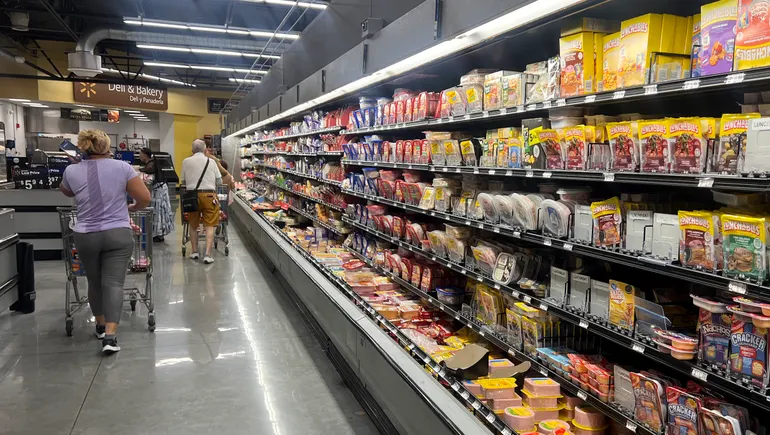Food recalls have been a hot topic this year, from contaminated cucumbers to mislabeled energy drinks. When public health announcements advise consumers to throw away recalled items, suppliers and distributors typically follow suit.
According to a report from compliance firm Sedgwick, the Food and Drug Administration and U.S. Department of Agriculture oversaw 294 food recalls in the first half of 2025. The FDA ordered the destruction of nearly 85 million units during the same period last year. USDA recalls affected nearly 1.5 million pounds of food, almost three times more than the previous year.
While some companies may explore alternative disposal methods, most recalled items likely end up in landfills.
Tracy Johnson-Hall, a clinical professor at William & Mary, mentioned, “There are various legally compliant ways to handle this, but everyone has a dumpster.”
Although handling mishaps and expiration uncertainties contribute to higher volumes of food waste, recalls still play a significant role. While some companies invest in depackaging technology to recover food for recycling, data on how much recalled food is recycled remains limited. Recyclers offering certified destruction services declined to comment on whether edible items are being landfilled or incinerated.
In many cases, recalled items or products that never make it further in the supply chain are safe for consumption. These products can often be repurposed by other businesses that cater to consumers who prefer not to see good food go to waste.
Understanding Recall Regulations
Companies aiming to reduce uneaten inventory may prioritize cutting down on other sources of waste due to their sheer volume. Overproduction accounts for nearly a quarter of all excess food, while almost one fifth is never harvested.
Food safety concerns, excluding date labeling issues, contribute to about 2.4% of all food waste in the U.S. each year, according to ReFED’s Food Waste Monitor.
Items are often voluntarily removed from sale to comply with FDA and USDA regulations. While federal departments can seize items and assist with inspections to identify contaminations and other issues, budget cuts at the FDA may impact these activities.
McGuireWoods, in the latest Sedgwick U.S. Recall Index Report, recommended that companies proactively monitor product safety in light of potential workforce and funding cuts at the FDA.
Consumer expectations for improved recall systems and safety measures make it challenging to predict a decrease in food recalls in the future.
Recalled items are most commonly pulled from sale due to allergen contamination, with milk being the primary allergen, followed by pathogens.
Mark Carter, a food quality and safety consultant, emphasized the importance of ensuring that no harmful products enter the market, whether they pose a microbial, physical, or chemical danger.
Exploring Upcycling Opportunities
Food supply chains often struggle with items that are safe to eat but do not meet corporate quality standards. Off-specification items or internal quality failures could be managed more effectively.
Brands have a strong incentive to repurpose these items, especially if they have a longer shelf life. For example, a slightly paler baked good might be sold at a discount store, or chunky peanut butter could find a new buyer through an intermediary facility.
Misfits Market, a company founded in 2018, partners with growers and suppliers to redirect off-spec items or internal quality failures to a grocery delivery service or incorporate them into new products.
Misfits Market offers produce that does not meet USDA grading standards, repurposing items that other retailers would typically avoid. Aesthetic differences that do not affect taste or texture are often downgraded in the grading process.
Suppliers are increasingly open to Misfits Market’s approach of creating new products with off-spec items, contributing to significant food waste reduction. Misfits Market has saved over 14 million pounds of food from waste so far in 2025.
Suppliers strive to minimize repeated off-spec mistakes, but production facilities are prone to errors. If quality failures cannot be repurposed for sales opportunities, they may be managed internally through established disposal methods.
As companies may bear greater responsibility for recalls in the future, concerns about various other food waste generated by these companies continue to grow.
Brands are increasingly conscious of food waste and are integrating waste reduction into their mindset and operations.

